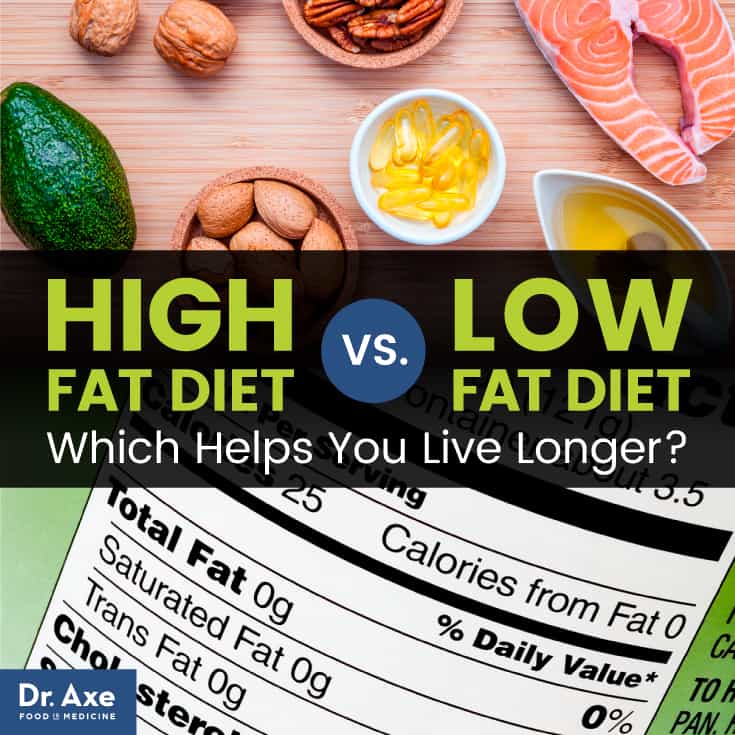This Dr. Axe content is medically reviewed or fact checked to ensure factually accurate information.
With strict editorial sourcing guidelines, we only link to academic research institutions, reputable media sites and, when research is available, medically peer-reviewed studies. Note that the numbers in parentheses (1, 2, etc.) are clickable links to these studies.
The information in our articles is NOT intended to replace a one-on-one relationship with a qualified health care professional and is not intended as medical advice.
This article is based on scientific evidence, written by experts and fact checked by our trained editorial staff. Note that the numbers in parentheses (1, 2, etc.) are clickable links to medically peer-reviewed studies.
Our team includes licensed nutritionists and dietitians, certified health education specialists, as well as certified strength and conditioning specialists, personal trainers and corrective exercise specialists. Our team aims to be not only thorough with its research, but also objective and unbiased.
The information in our articles is NOT intended to replace a one-on-one relationship with a qualified health care professional and is not intended as medical advice.
Low-Carb, High-Fat Diet vs. Low-Fat Diet: Which Helps You Live Longer?
December 12, 2017

After being demonized for much of the 90s, dietary fats have made a strong comeback over the past two decades. Most people now realize that including healthy fats in their diet is important for many essential functions, but still, this doesn’t mean that they are necessarily eating enough of it — especially in proportion to the amount of refined carbohydrates they consume — or eating anything close to a high-fat diet.
A number of studies have found that low-carb diets — which tend to be higher in dietary fats, especially a very-low-carb, high-fat diet like the keto diet — tend to promote more satiety and weight loss compared to low-fat diets. And now findings from a very large, newly published study that appeared in the August 2017 issue of The Lancet also suggests that high-fat diets offer more protection against mortality compared to those that are lower in fat. (1)
The Groundbreaking Study
The Lancet study — which included more than 135,000 adults from 18 countries, spanning five continents — is turning much of what people thought that they knew about the relationship between fat intake and risk for heart disease and mortality (death) on its head. (This includes the misguided authors of the documentary “What the Health.”) The study found associations between eating a low-fat diet and having a significantly higher risk for mortality, just the opposite of what most people would expect.
Researchers involved in the study point out that “The relationship between macronutrients and cardiovascular disease and mortality is controversial.” For years, there hasn’t been much consensus in the health/nutrition community regarding what level of total fat intake is optimal, nor what the percentage of different types of fats (monounsaturated, polyunsaturated or saturated) in the diet should ideally be.
To help shed light on the ways that fat intake may benefit or harm cardiovascular health, researchers involved in the study split participants into categories based on the percentage of energy in their diet (calories) provided by the three macronutrients (carbohydrate, fats and protein). They then assessed the associations between consumption of carbohydrate, total fat and each type of fat with cardiovascular disease risk (which includes fatal cardiovascular disease, non-fatal myocardial infarction, stroke and heart failure) and total mortality risk.
Below are some of the study’s key findings after comparing low-carb, high-fat diets vs. low-fat diets:
- High carbohydrate intake was associated with higher risk of total mortality, whereas total fat and individual types of fat were related to lower total mortality.
- Total fat and types of fat were not associated with cardiovascular disease, myocardial infarction or cardiovascular disease mortality.
- Saturated fat intake had an inverse association with the risk for suffering from a stroke, meaning the more saturated fat included in someone’s diet, the more protection against having a stroke they seemed to have.
- Even though higher carb intake was associated with mortality, it was not associated with higher cardiovascular disease risk or cardiovascular disease-related mortality.
Low-Carb, High-Fat Diet vs. Low-Fat Diet — Why High-Fat, Low-Carb Is Better
Why is it that a high-fat diet seemed to offer better protection against cardiovascular disease and mortality than a low-fat diet? Experts believe (and common sense tells us) that a major contributing factor is that low-fat diets are often higher in added sugar and refined grains, including products made with flour. When someone eats less fat they are likely to replace those calories with carbohydrates, often which are found in convenient, cheap and highly processed foods.
Replacing a percentage of calories from fat with healthy, whole-food sources of carbs, like starchy root vegetables for example, might not be unhealthy or a risk factor for disease, but this is rarely what happens in real life.
Here are some of the ways that a high-fat diet can be beneficial:
1. Fat May Fight Disease and Boost Longevity
Some studies looking at the effects of eating a low-carbohydrate diet, which usually includes higher levels of saturated fats, suggest that higher-fat diets don’t necessarily raise blood cholesterol levels and can even be beneficial for cardiovascular disease risk markers, such as triglyceride levels. High-fat diets can also be beneficial for lowering obesity risk, regulating insulin sensitivity, decreasing risk for diabetes and might even offering protection against cancer. (2)
2. Helps with Sustainable Weight Loss
Many people find that diets higher in fat are more satiating and turn off hunger signals and appetite much more so than lower-fat diets do. A high-fat diet may help regulate ghrelin levels, a hormone that controls appetite, and cut down on the desire to snack or overeat.
3. Helpful for Cognitive/Neurological Health
The brain requires a high amount of energy, including cholesterol, as a source of fuel. Certain kinds of fats, especially cholesterol, act like antioxidants and precursors to some important brain-supporting molecules and neurotransmitters. Some studies have found links between higher-fat intake and protection against conditions like dementia and depression.
A 2013 study published in the Journal of Neurology, Neurosurgery and Psychiatry found that elderly people who added more healthy fats to their diets were better able to maintain cognitive function compared to elderly adults who ate lower-fat diets. (3)
4. Important for Hormonal Balance & Reproduction
Cholesterol and other fats play a fundamental part in building cellular membranes and producing hormones. Some studies have found that low-fat diets raise the risk of menstrual problems and difficulty getting pregnant. For example, it’s been found that high intake of low-fat dairy foods may increase the risk of anovulatory infertility (when ovulation does not occur), but higher intake of high-fat dairy foods may decrease this risk. (4)
5. Needed for Proper Absorption of Vitamins
Dietary fats provide the body with lipid molecules, which have many roles in the body and are essential for life. We all need a certain amount of fats including cholesterol for our health not to suffer, and different lipids support various bodily functions including: providing energy storage, signal transduction, building cellular structures, production of hormones and steroids, activating enzymes, supporting brain function, and absorbing other dietary lipids and fat-soluble vitamins, including vitamins A, D, E and K.
Is Your Diet High Enough In Healthy Fats?
The Lancet study showed that low fat diets were associated with higher risk for mortality, and you may be wondering why that is. What specific types of health problems might low-fat diets contribute to, according to other research studies?
Low-fat diets have been shown to be associated with some of following symptoms and conditions:
- Weight gain, due to increased hunger and cravings
- Changes in heart health markers, including blood lipid profiles, cholesterol levels, blood pressure, insulin sensitivity and glucose levels
- Low energy levels, reduced recovery from exercise and muscular weakness
- Neurological problems, including stroke and dementia, memory loss, brain fog, and poor performance on cognitive measures including abstract reasoning, attention/concentration, word fluency and executive functioning
- Infertility, low sex drive or hormone imbalances (including of the sex hormones testosterone and estrogen)
- Insulin resistance and diabetes
- Depression and anxiety
- Trouble sleeping
- Gut-related issues
- Nutrient deficiencies, especially in vitamin A, E D and K
How Much Fat Do You Need?
Even though the Lancet study is groundbreaking in terms of reversing what many people still think about the negative effects associated with eating dietary fats, we still might not see government dietary recommendations change any time soon. The debate over the ideal percentage of fat in one’s diet is likely to be ongoing, but for now experts recommend:
- Aiming to get about 35 percent of your daily calories from sources of healthy fats. (5)
- If you’re eating a 2,000 calorie diet, this equates to getting about 700 calories from fat daily, or about 77 grams (give or take a bit).
- If your calorie needs are higher, around 2,500 per day, you should aim to get about 875 calories from daily, or about 97 grams.
If you’re looking for a way to safely increase your healthy fat intake even more, while also decreasing the amount of carbohydrates in your diet (particularly refined carbs), then I recommend you consider trying a moderate approach to a ketogenic diet. The ketogenic diet is a very-low-carb diet that has been used successfully since the 1920s to improve certain metabolic disease health markers, prevent or treat obesity, and even treat disorders such as epilepsy.
The keto diet might seem extreme to some — it involves getting about 70 percent or more of your daily calories from fat and only about 25–30 grams of net carbs per day — but a more moderate approach is a great place to start. Eating a variety of fats is best, since the main fats we must obtain from our diet include: saturated fats (long- and medium-chain), monounsaturated fats and polyunsaturated fats (especially omega-3s and some omega-6s).
Whether you’re technically “in ketosis” from your diet or not, lowering your carb intake to about 50–75 grams of net carbs daily, while increasing your intake of a variety of healthy fats (like coconut oil, olive oil, grass-fed beef or poultry, nuts, seeds, eggs and wild-caught fish) can still have a huge payoff.
Remember that the most important thing to focus on is limiting or eliminating empty sources of calories from processed foods, refined carbs and added sugar.
Precautions If You’re Following a Low-Carb Diet
When it comes to drastically limiting your carb intake, one thing to be aware of is that the transition to eating a low-carb, high-fat diet isn’t always so smooth; some temporary side effects are common during the first several weeks of transitioning your diet, including symptoms like fatigue, cravings, constipation or weakness. But once your body adjusts these symptoms tend to go away, leaving you feeling clear-headed, more satisfied from your meals and more energized over all.
Final Thoughts on Low-Carb, High-Fat vs. Low-Fat Diets
- A recent study published The Lancet found that high carbohydrate intake was associated with higher risk of total mortality, whereas total fat and individual types of fat were related to lower total mortality.
- Higher consumption of fat, especially from saturated fats, was even shown to offer increased protection against stroke.
- To decrease your risk for problems like weight gain due to hunger and cravings, depression, insulin resistance and dementia, experts recommend getting around 35 percent of daily calories from healthy sources of fat (like coconut oil, olive oil, grass-fed beef or poultry, nuts, seeds, eggs and wild-caught fish), while limiting intake of processed foods, refined carbohydrates and added sugar.
Read Next: The Keto Diet for Women




